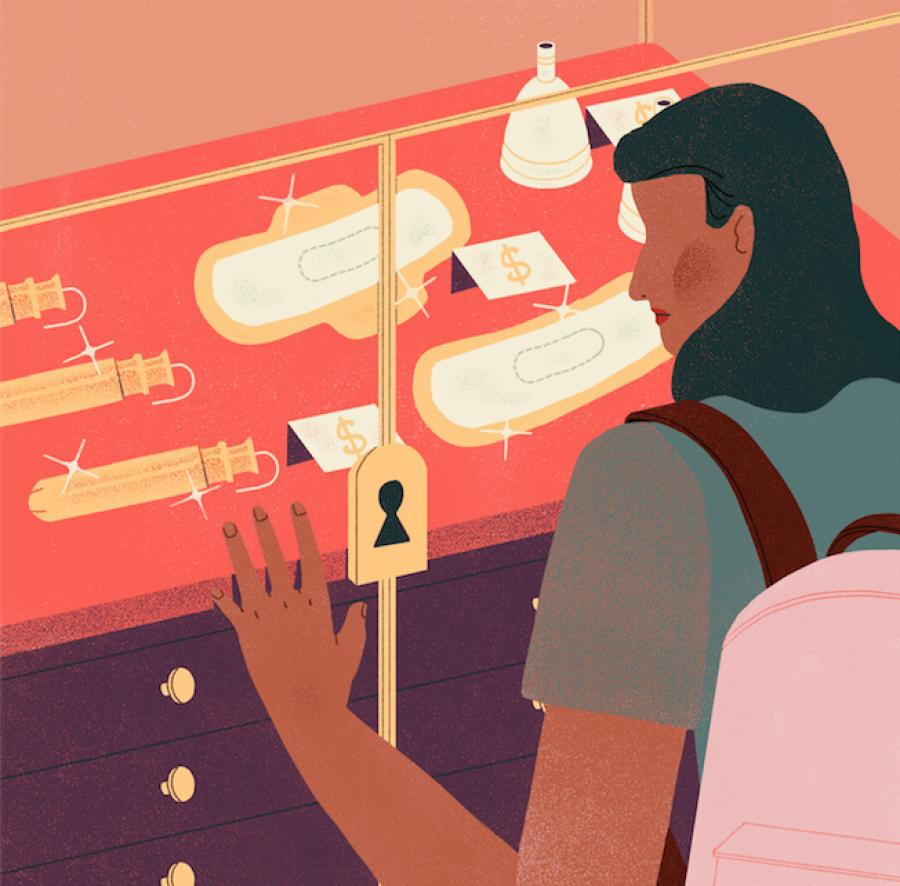

In Sri Lanka, it is evident that the topic of menstruation is regarded as a taboo which is approached with caution in society only if absolutely necessary, and it being very rarely ever discussed publicly and freely. The subject of reproductive health is sparsely expounded in schools where this knowledge is most vital. This topic is either grossed over or never taught at all.
This apparent lack of knowledge on menstruation has created a culture of misinformation and fear especially among young girls. In a survey from 2015, 66% of girls were unaware that they were going to experience something like the period cycle in their life. When they did start their period, more than a third of the girls reported missing one or two days of school to avoid embarrassment and stigma and another study found that 60% of teachers associated menstrual blood with impurity. This stigma perpetuates ignorance in the practice of good menstrual hygiene. In a survey of adolescent girls in Sri Lanka, when asked why they missed school while on their periods, about 68% to 81% mentioned pain and physical discomfort and 23% to 40% said that is was due to fear of staining clothes. It’s not uncommon throughout Sri Lanka. More than half of the adolescents responding to a UNICEF study in 2015 did not want or weren’t allowed to go to school during their periods, while 37% miss one or two school days each month.
In order to maintain good menstrual hygiene, access to suitable and appropriate menstruation products is crucial. Menstrual poverty refers to the lack of education on menstruation, as well as having little to no access to essential sanitation for basic hygiene during the menstruation period. A major component of period poverty in Sri Lanka is as a result of the high cost of feminine hygiene products. About 52% of Sri Lanka’s general population constitutes women and yet, access to affordable menstrual hygiene products is a rarity. Products such as menstrual pads are very heavily taxed, and up until September of 2018, the levy on imported menstrual products was more than 100%. On average, women are on their period for about five days and use about four pads a day, costing women in Sri Lanka about 520 LKR per month. For perspective, the average monthly income for households in the poorest 20% is 14,843 LKR effectively forcing people who menstruate to pay 3.5% of their household income on a natural, biological process that is entirely out of their control.
The inability to afford menstrual hygiene products have drastic negative effects on the woman’s health. Either the women stay at home avoiding going to school or work or they make replacements which prove to be unhygienic and unsafe. Women who remain at home during their menstruation period due to the inaccessibility of menstrual hygiene products results in a sharp drop in the participation in the labor force leading to a decrease in productivity in the workplace. This also affects the education of young girls who are forced to miss school due to not having proper sanitary products. Many families have to share toilets with no proper facilities and women often have to reuse cloths or rags. Poor menstrual hygiene practices can lead to health conditions, including cervical cancer and reproductive tract infections. A study conducted in India showed a link between cervical cancer (which is the second most common cancer among Sri Lankan women) . The cloths also lead to more staining, which is one of the reasons for girls missing school.
Menstrual hygiene rights are one of the basic human rights, as the universal declaration of human rights states in its preamble that all human beings should be recognized for their inherent dignity. Menstrual hygiene rights are connected to the right to non-discrimination, to health and healthy environment, education and work. The possible way to ensure that menstrual hygiene rights and basic human rights are maintained is to make menstruation hygiene products more accessible and readily available to all the women in Sri Lanka. This can be done by reducing the current taxation rates on feminine products and removing import levies as well as distributing free sanitary napkins or pads to the less fortunate.
It was announced recently that the Ministry of Education is planning to provide free sanitary napkins to approximately 800,000 schoolchildren through a three-stage project this year, with priority to be given to schoolchildren in rural areas due to them facing greater issues with the affordability and accessibility of sanitary napkins. This program would be implemented before the end of this year and the Government Medical Officers’ Association (GMOA) would be monitoring the implementation of this programme in each district.
The Health and Nutrition Programme further hopes to construct toilet facilities in 2,500 selected schools with over 2,000 students. The programme would also look at providing sanitary rooms, in addition to sanitary napkins, to relevant schools.
If this program proves successful in ensuring that all the women in need of menstrual hygiene products have access to them, it would be beneficial not only to the women’s health, education, general well-being but also it would have a positive impact on the Sri Lankan industry and encourage economic growth in the country.
In addition to supplying sanitary products, if program intent on educating the public especially young girls about menstruation and in general about reproductive health, were implemented in Sri Lanka, I think the taboo will be no more and the stigma surrounding the topic will wane allowing for the emergence of a more educated and understanding society and more fierce, independent and healthy women ready to contribute to the development of the country without the drawbacks of menstruation.
-Piyumi W.J.K Weeraman
Sources:
2) https://www.borgenmagazine.com/lack-of-proper-menstrual-hygiene-in-sri-lanka/
3) http://www.themorning.lk/free-pads-for-800000-students-in-2021/
piyumi
Mar 31, 2021
0